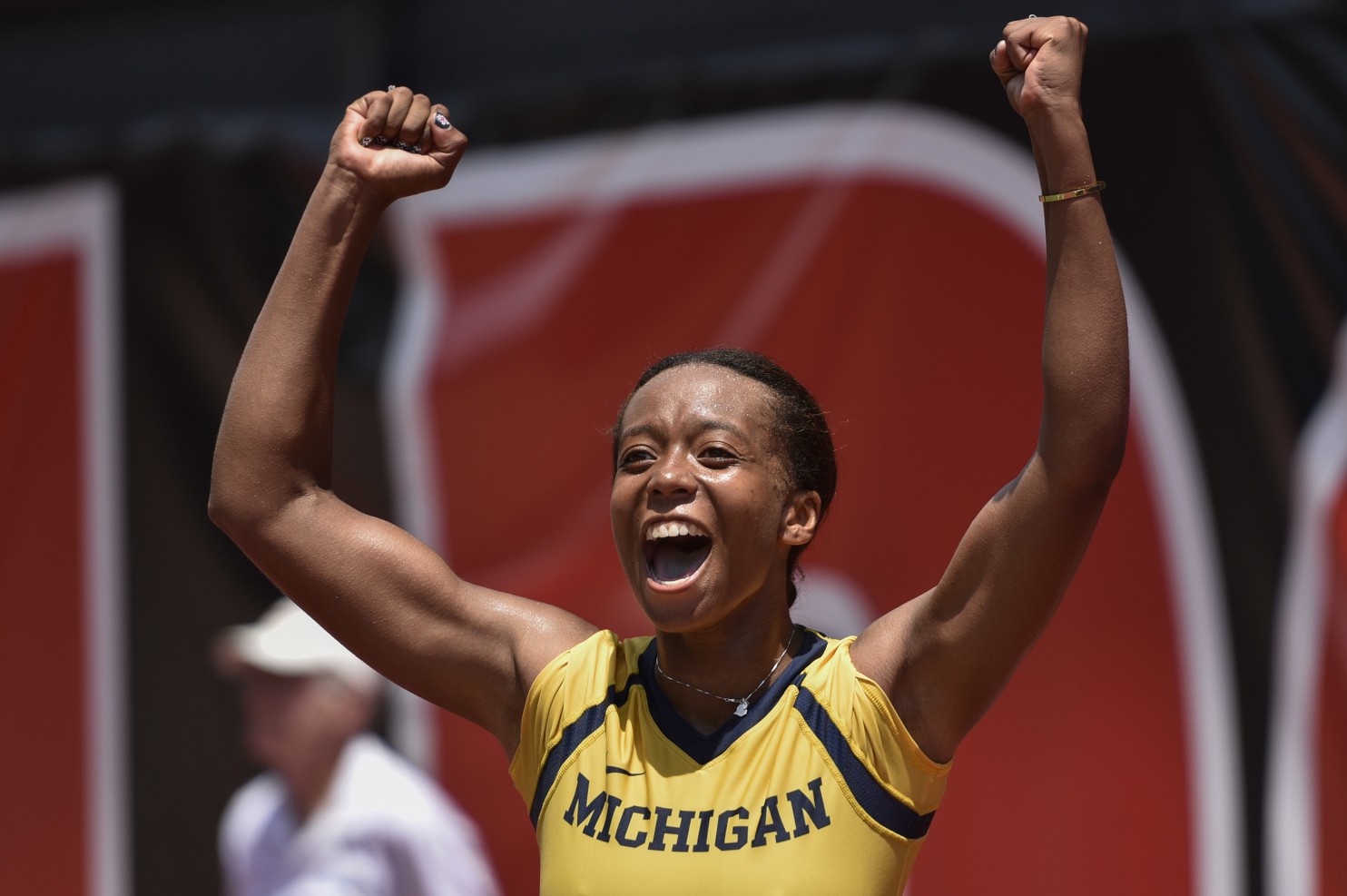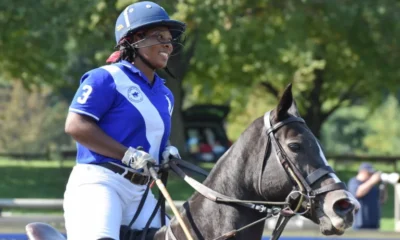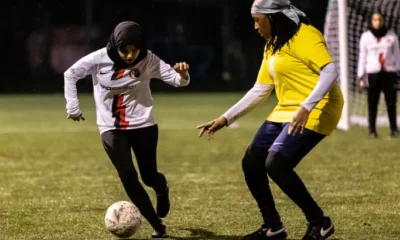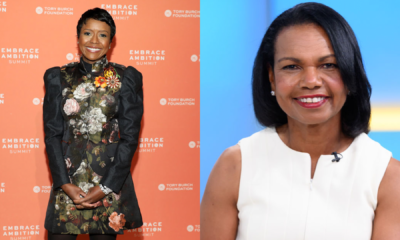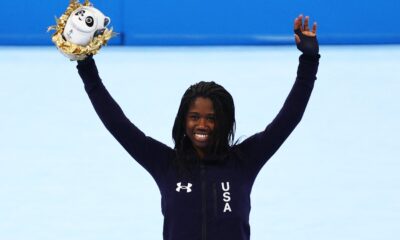Black Women in Sports
She became the first black woman to win an NCAA Division I singles title, and she had no idea
The woman wearing maize and blue celebrated her moment knowing she had made history, but not quite knowing the full extent of the story.
When her opponent’s forehand down the line finally floated long, Brienne Minor simply offered a joyful, graceful toss of her racket, a double fist-pump at shoulder level and a single clap in front of her chest. Then off to the net to shake hands. She kept her head down for the first few steps — best not to smile too big in front of the runner-up.
Minor had always been quiet and humble, the third in a line of tennis-playing sisters from Mundelein, Ill., a suburb of Chicago. But if she ever had a reason to lose her composure, to rip the neatly knotted bun at the nape of her neck loose and really go berserk, it would have been on that muggy Monday last month in Georgia when Minor captured the NCAA singles title and became Michigan’s first national champion in the sport.
The 19-year-old is the first African American woman to win an NCAA Division I singles championship. She is the first black player to win a Division I singles title for either men or women since Arthur Ashe in 1965.
“I didn’t even realize it until my sister said something to me a couple days later,” Minor said over the phone, having closed out the school year and driven the five hours or so from Ann Arbor, Mich., to her home town for a two-week break from tennis. “It’s such an honor, and I hope I can be a good role model for other African American tennis players, because there’s not a lot in this game.”
Nor has there ever been, despite superstars Venus and Serena Williams and their countrywomen Madison Keys, Sloane Stephens and Taylor Townsend holding down American women’s tennis in the pros. In the collegiate ranks, 354 out of 8,591 female tennis players during the 2015-16 season were black. That’s 4.1 percent across all three divisions, excluding historically black colleges and universities.
At first, Minor, her family and her coaches were too consumed by her run through the tournament to consider the improbable odds.
Minor was tired, physically and emotionally, following her two-week sojourn in Athens, Ga., which included the team tournament. As an unseeded sophomore in the individual event, she won six matches in six days. She had already toppled two top-16 seeds…
Please read original article- She became the first black woman to win an NCAA Division I singles title, and she had no idea



